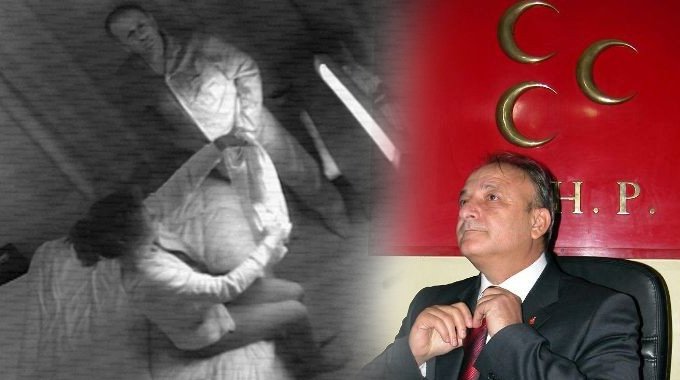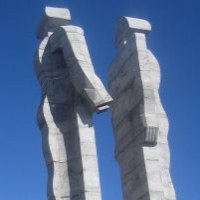![]()
Mon, May 30, 2011 | Turkey Analyst, vol. 4 no. 11 | Gareth H. Jenkins
Above the Threshold, Below the Belt: the Video Campaign Against the MHP
This article was first published in the Turkey Analyst (www.turkeyanalyst.org), a biweekly publication of the Central Asia-Caucasus Institute & Silk Road Studies Program Joint Center. © Central Asia-Caucasus Institute & Silk Road Studies Program Joint Center, 2010.
On May 21, 2011, six members of the Turkish ultranationalist Nationalist Action Party (MHP) resigned from the party’s National Executive Committee after an internet website began broadcasting secretly-recorded videos of them engaging in extramarital sexual relations. Over the previous month, four other leading members of the MHP had been forced to resign after similar secretly-recorded videos were posted on the same internet website. The identity of those responsible for recording and broadcasting the videos currently remains unclear. However, opposition parties have accused supporters of the ruling Justice and Development Party (AKP), whose campaign for the June 12 general election has been largely based on trying to prevent the MHP from gaining enough votes to cross the 10 percent threshold for representation in parliament.
Background
The victor in the June 12, 2011, general election is not in doubt. Everybody expects the AKP to win a third consecutive term in office. The only questions are the size of its vote and, more critically, the number of seats it will have in parliament. The AKP election manifesto promises that the party’s overriding priority after the election will be the drafting of a new constitution. Prime Minister Tayyip Erdoğan has already made it clear that he wants the new constitution to include a transition from a parliamentary system to a presidential one; and then have himself elected president for two successive five-year terms. Under Turkish law, a new constitution can be enacted by parliament if it has the support of at least 367 of the 550 deputies. If 330 vote in favor, then the president can opt to put the draft to a referendum.
Under Turkey’s electoral system, seats in parliament are shared proportionally between parties which win more than 10 percent of the national vote. The only exception is for individuals standing as independents who perform particularly strongly in their constituencies. As a result, the AKP’s hopes of returning 367 or 330 deputies depend as much on the number of parties with which it will share the seats in parliament as on the size of its own vote. Recent opinion polls suggest that support is running at 44-48 percent for the AKP, 28-30 percent for the Republican People’s Party (CHP) and 12-13 percent for the MHP. Under these circumstances, the AKP’s main hope of securing a sufficiently large majority to be able to draft its own constitution lies not in increasing its own vote but in driving the MHP below 10 percent.
The deadline for the submission of the parties’ candidate lists to the Supreme Electoral Board (YSK) was April 25, 2011. On April 27, 2011, a group calling itself Farklı Ülkücülük (“A Different Nationalism”) broadcast secretly-recorded videos on the internet showing two members of the MHP National Executive, Recai Yıldırım and Metin Çobanoğlu, engaged in extra-marital sexual relations. Both men subsequently resigned and cancelled their candidacies for the June 12 election. On May 7, 2011, two more secretly-recorded sex videos of MHP parliamentary candidates, Bülent Didinmez and İhsan Barutçu, were posted on the internet by Farklı Ülkücülük. Didinmez was also a member of the MHP National Executive. Again, both men subsequently resigned.
On May 13, 2011, Farklı Ülkücülük issued a statement claiming to have secretly-recorded sex videos of six more members of the MHP National Executive Committee, all of them also candidates in the June 12, 2011, general election. Farklı Ülkücülük threatened to make the names public unless MHP Chair Devlet Bahçeli resigned by 10.00 a.m. on May 18. Bahçeli issued a statement refusing to step down. On May 18, 2011, Farklı Ülkücülük named the six as Mehmet Ekici, Cihan Paçacı, Deniz Bölükbaşı, Osman Çakır, Ümit Şafak and Mehmet Taytak. Bahçeli still refused to move. Early in the morning of May 21, 2011, Farklı Ülkücülük posted the first of the six videos on the internet. All of those named on May 18, 2011, subsequently tendered their resignations. As a result, the MHP entered the final weeks of the election campaign with only seven of the original 16 members of its National Executive Committee and 540 of its original 550 parliamentary candidates.
Implications
In statements posted on the internet, Farklı Ülkücülük claimed to be disgruntled Turkish nationalists seeking to purge the MHP of those engaged in “immoral” activity and restructure the party in order to allow it to sweep to power in the election after the one on June 12, 2011. This thesis has been repeated by Prime Minister Tayyip Erdoğan. In his campaign speeches, Erdoğan has relentlessly exploited the sex videos, claiming that they demonstrate the immorality of the MHP, the divisions within the party and how some of its members have links with blackmailing gangs. However, there are many reasons to question this explanation.
The first is the timing of the release of the videos. Some are clearly many months old. If the real intention was to purge and strengthen the MHP, the videos would have broadcast well in advance of the June 12, 2011, election, leaving the party time to regroup ahead of the polls. The fact that the videos began to be posted on the internet two days after the deadline for the submission of the parties’ candidate lists leaves no doubt that the goal was to damage the MHP in the coming election, not strengthen it at a subsequent one.
More disturbing are the resources that would have been needed to stage such an operation. Initial intelligence-gathering to spot potential targets would have been followed by extensive surveillance to identify their trysting locations in hotels and private homes. The premises were then burgled to install the devices, which were expertly hidden and included sophisticated motion-sensitive cameras able to operate in low light. The premises then appear to have been burgled again to remove the devices. The videos were posted on internet sites registered outside Turkey through a lengthy process designed to minimize their digital footprint and make it extremely difficult to trace them back to their original source. The only institutions active in Turkey which are known to possess the resources required to stage such a massive operation are the National Intelligence Organization (MİT) and the highly politicized intelligence branch of the Turkish National Police (TNP), which has been driving the notorious Ergenekon and Sledgehammer investigations. Under most circumstances, any indication that a criminal organization possessed similar resources would have been enough to galvanize the security forces into action. But the reaction of the TNP has been desultory.
If Farklı Ülkücülük really was composed of disgruntled Turkish nationalists, they would have been aware that, in addition to discrediting the individuals targeted, the videos would also do considerable damage to the MHP itself. If the intention was merely to purge “immoral” individuals, it would have made sense to try to minimize the damage to the MHP itself by demonstrating that its rivals are no different. It is an open secret in the AKP that several leading members of the party – including some serving and former ministers – are engaged in extramarital affairs. Yet no sex videos of members of the ruling party have been posted on the internet.
Indeed, in one of the most rancorous election campaigns in recent memory, Erdoğan has made it clear that those who criticize the AKP or do not afford him the necessary personal respect can expect legal sanctions. In an address to the Ankara Chamber of Commerce on May 18, 2011, Erdoğan pointedly noted that a lieutenant general who had refused to stand up as a sign of respect to him was now “paying the price”. The reference was to an incident on March 18, 2004, when Lieutenant General Engin Alan refused to stand up when Erdoğan arrived late at a ceremony to commemorate a Turkish naval victory in 1915. Alan is currently in jail facing charges of plotting a coup in 2003 as part of the Sledgehammer investigation. On December 1, 2010, Erdoğan angrily refuted suggestions in the Wikileaks documents that he had eight Swiss bank accounts. He noted that someone who had once accused him of corruption, and the acquisition of $1 billion in personal wealth, was now languishing in prison in Silivri, just outside Istanbul. The reference was to an article by journalist Tuncay Özkan on July 31, 2001, in which he alleged that Erdoğan had amassed $1 billion during his 1994-1998 term as mayor of Istanbul. Özkan has been incarcerated since 2007 on charges of belonging to the alleged Ergenekon organization.
On May 20, 2011, Erdoğan turned his attention to Abbas Güçlü, a journalist at the Milliyet daily newspaper who has written extensively about the apparent organized cheating in the preliminary university entrance examination on March 27, 2011; which the AKP’s opponents have claimed was organized by Islamists close to the government. Although the evidence of cheating appears irrefutable, no concrete proof has emerged to incriminate either the AKP or its supporters. Nevertheless, speaking on national television, Erdoğan warned that, unless Güçlü stopped writing about the scandal, he too would “pay a heavy price”.
Conclusions
There is no evidence that Erdoğan or any of the other leading members of the AKP are directly involved in the sex video campaign against the MHP. Nevertheless, it is difficult to avoid the conclusion that it is being run by supporters of the government. Indeed, in mid-April 2011, AKP election campaigners reported that they had been told by the party leadership “to do everything possible to push the MHP under the 10 percent threshold”; an instruction which appears likely to have encouraged any government supporters in possession of incriminating videos to make them public.
It is currently unclear what impact the videos will have on the MHP vote in the June 12 general election. The resignations from the party National Executive Committee have inevitably damaged the party’s ability to conduct its election campaign. Initially, the videos also appeared to have eroded the party’s grassroots support amongst the conservative masses of Anatolia. However, recently, Bahçeli’s dogged refusal to be intimidated has won him respect even amongst those who dislike the MHP; and it may be that his refusal to bow to blackmail will win the MHP as many votes as it loses.
Regardless of who is responsible for recording and posting the videos on the internet, the reluctance of the authorities to pursue those responsible for a crime which is damaging to the AKP’s opponents has reinforced already serious concerns about judicial impartiality in Turkey. Equally worrying has been the manner in which Erdoğan and the AKP have attempted to exploit the videos, particularly at a time when a growing number of the government’s critics are being imprisoned or intimidated into silence.
About the author,
Gareth Jenkins, a Senior Associate Fellow with the CACI & SRSP Joint Center, is an Istanbul-based writer and specialist of Turkish Affairs.



 RSS
RSS















Above the Threshold, Below the Belt: the Video Campaign Against the MHP | #Turkey #MHP #Freedom #Elections http://j.mp/jMtt58
Above the Threshold, Below the Belt: the Video Campaign Against the MHP | #Turkey #MHP #Freedom #Elections http://j.mp/jMtt58
[…] the sex tapes that were leaked against the MHP (nationalist opposition party) in May appear to have worked in favor of the MHP, which […]